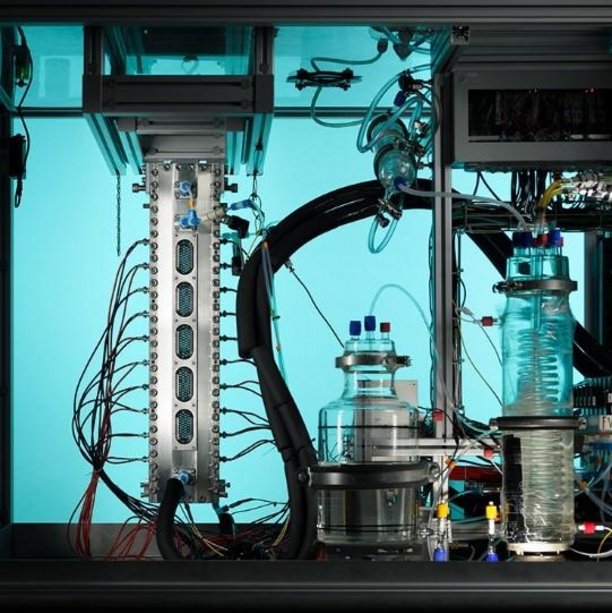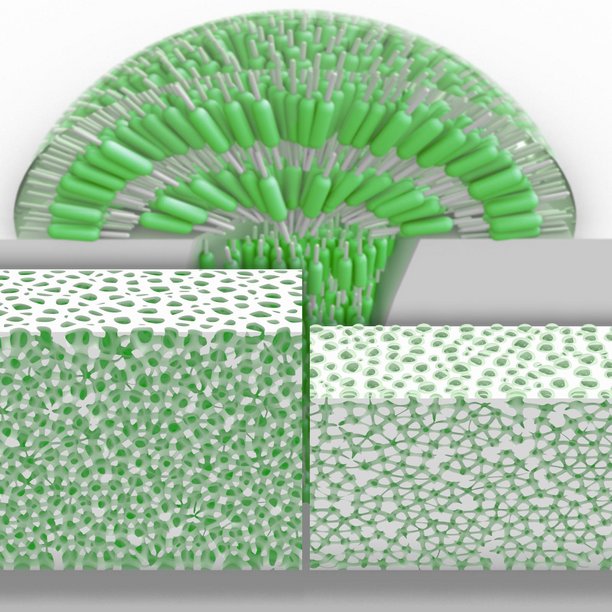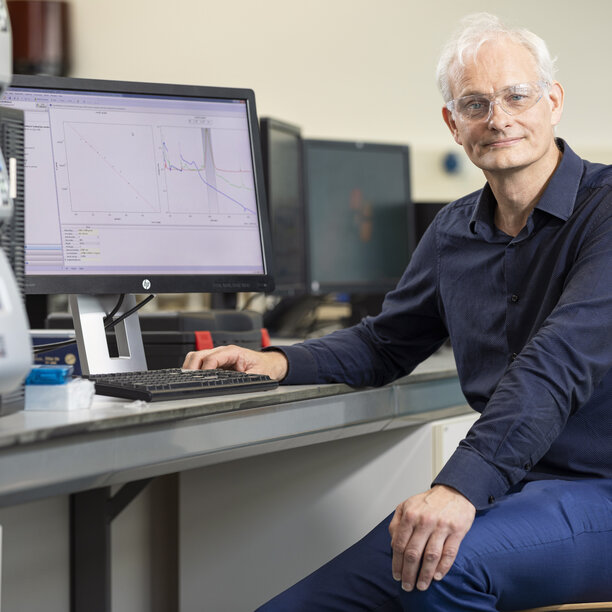Research in aid of societal challenges
The Department of Chemical Engineering and Chemistry performs cutting-edge research ranging from atomic scale molecular design and nanoscale organization of new functional materials to the design of large scale production, process, and equipment concepts. Our researchers collaborate with other departments within the university like Biomedical Technology, Mechanical Engineering and Apllied Physics. And also outside the university with academic and commercial parties world wide like R&D representatives from the chemical industry, engineering firms, equipment manufacturers and spin-off companies founded by TU/e staff.
There are three focus areas in which we excel: molecules, materials and processes. Our nine research groups work mostly in one of those areas but some connect two of the areas.
Our research groups
Our research collaborations
The department of Chemical Engineering and Chemistry is involved in a variety of research institutes and labs in- and outside Eindhoven University of Technology.


